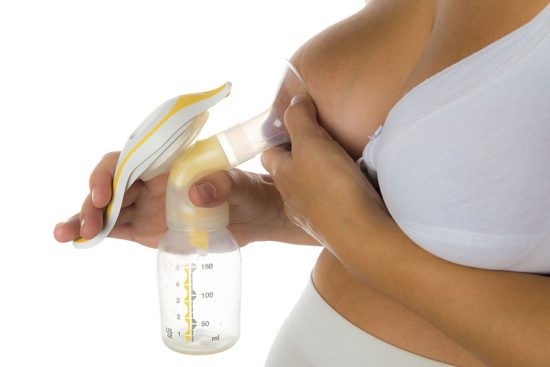Every year we get thousands of calls to our infant feeding helpline showing it’s an invaluable source of support for so many parents. We share the most common questions we’re asked and useful tips and information about feeding for all new parents.
There are lots of different positions for you and baby to try when it comes to feeding. This is why 22% of mums call us to find out if they were holding their baby in the right way.

The way you hold your baby can make a big difference to how well they feed. The aim is for your baby to take a large mouthful of breast and have their chin pressed against your breast when feeding.
You may want to try a few different positions to see what feels most comfortable for you both and helps your baby feed well. This could be lying down, sitting in a chair with your baby under your arm in the rugby ball position or across your lap.

Whatever position you choose, our top tips are:
For more information on breastfeeding positions, see here
If you have questions, concerns or need support, you can speak to a breastfeeding counsellor by calling our infant feeding line on 0300 330 0700.
As with a lot of parenting, whatever works for you and your baby is the right way. But we know parenthood is a learning curve with 19% of mums calling our helpline to find out whether they are doing it right.
Breastfeeding is a skill and it can take several weeks before it feels easy to do. If breastfeeding feels comfortable for you and your baby is usually satisfied after feeds, with plenty of wet, heavy nappies, you’re doing it in the right way for the two of you.
You might also find our article ‘How can I tell if my baby is feeding well’ useful.

Expressing milk can be useful for a variety of reasons – 17% of women who called our helpline asked about expressing.
At first you may not be able to collect much, but the more you express, and the more your body gets used to it, the easier it usually becomes.
You can express by hand or by using a manual or electric pump. It’s a personal preference and will also depend on your reasons for expressing. Read more about hand expressing milk and using a manual pump here.

Feeding is not always a case of exclusively breastfeeding or exclusively formula feeding and many women do a combination – sometimes known as mixed feeding.
This is a personal decision and will depend on individual circumstances – 11% of mums called us to ask about formula feeding.
So if you’re thinking of introducing formula, but are unsure whether to or how, give us a call. We’re here to discuss your individual situation and support you.
If you use powdered formula, make sure you prepare it safely to reduce the risk of infection, as recommended by the Department of Health. See our step-by-step formula preparation guide here.
If you continue to breastfeed as well as feed formula, your breastmilk will continue to offer benefits to your baby.
The more breastmilk you can give to your baby, the greater the benefits.
For more information on introducing formula milk see here.
For more information on combination feeding see here.
This can feel tricky to figure out – especially in the early days – and 10% of you called our support line with this question. The helpful thing is your baby will make little signals that you’ll soon come to recognise, making it easier to know how to respond to your baby.

These are sometimes known as early feeding cues and might include sucking their fists, licking their lips or wriggling around and opening their mouth searching for your breast.
Every baby is different so how much milk a baby needs or takes during a breastfeed will vary, as well as how long it takes.
Your baby will usually show when they’ve had enough milk by coming off the breast by themselves and looking satisfied.
Every feed will be different though – some quick and some long. Think of your appetite. Sometimes you might need a snack and at other times a three-course meal.
Some babies tend to be quick feeders and others are gentle feeders. As a guide, most feeds are between 15 and 45 minutes.
For more info on how much and how often to breastfeed, see here.
If you have any questions, whether you’re exclusively breastfeeding, using formula milk or both, call us today.
We’re able to offer help and support at what can be an overwhelming time for new parents.
Our breastfeeding counsellors have had extensive training, will listen without judging or criticising and offer relevant information and suggestions. Call 0300 330 0700.
We also have lots of useful information about feeding – from breastfeeding to introducing a bottle – on our website so click here.